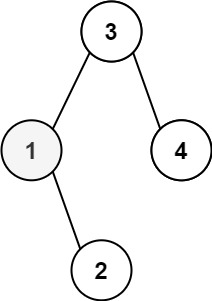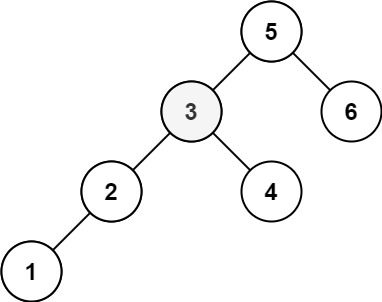LeetCode-in-All
230. Kth Smallest Element in a BST
Medium
Given the root of a binary search tree, and an integer k, return the kth smallest value (1-indexed) of all the values of the nodes in the tree.
Example 1:

Input: root = [3,1,4,null,2], k = 1
Output: 1
Example 2:

Input: root = [5,3,6,2,4,null,null,1], k = 3
Output: 3
Constraints:
- The number of nodes in the tree is
n. 1 <= k <= n <= 1040 <= Node.val <= 104
Follow up: If the BST is modified often (i.e., we can do insert and delete operations) and you need to find the kth smallest frequently, how would you optimize?
Solution
# Definition for a binary tree node.
#
# defmodule TreeNode do
# @type t :: %__MODULE__{
# val: integer,
# left: TreeNode.t() | nil,
# right: TreeNode.t() | nil
# }
# defstruct val: 0, left: nil, right: nil
# end
defmodule Solution do
@spec kth_smallest(root :: TreeNode.t() | nil, k :: integer) :: integer
def kth_smallest(root, k) do
{_, value} = find_kth_smallest(root, k, 0)
value
end
defp find_kth_smallest(nil, _, count), do: {count, nil}
defp find_kth_smallest(node, k, count) do
# Search left subtree
{count, left_value} = find_kth_smallest(node.left, k, count)
# Check if we have found the k-th smallest element
if left_value do
{count, left_value}
else
count = count + 1
if count == k do
{count, node.val}
else
# Search right subtree
find_kth_smallest(node.right, k, count)
end
end
end
end

